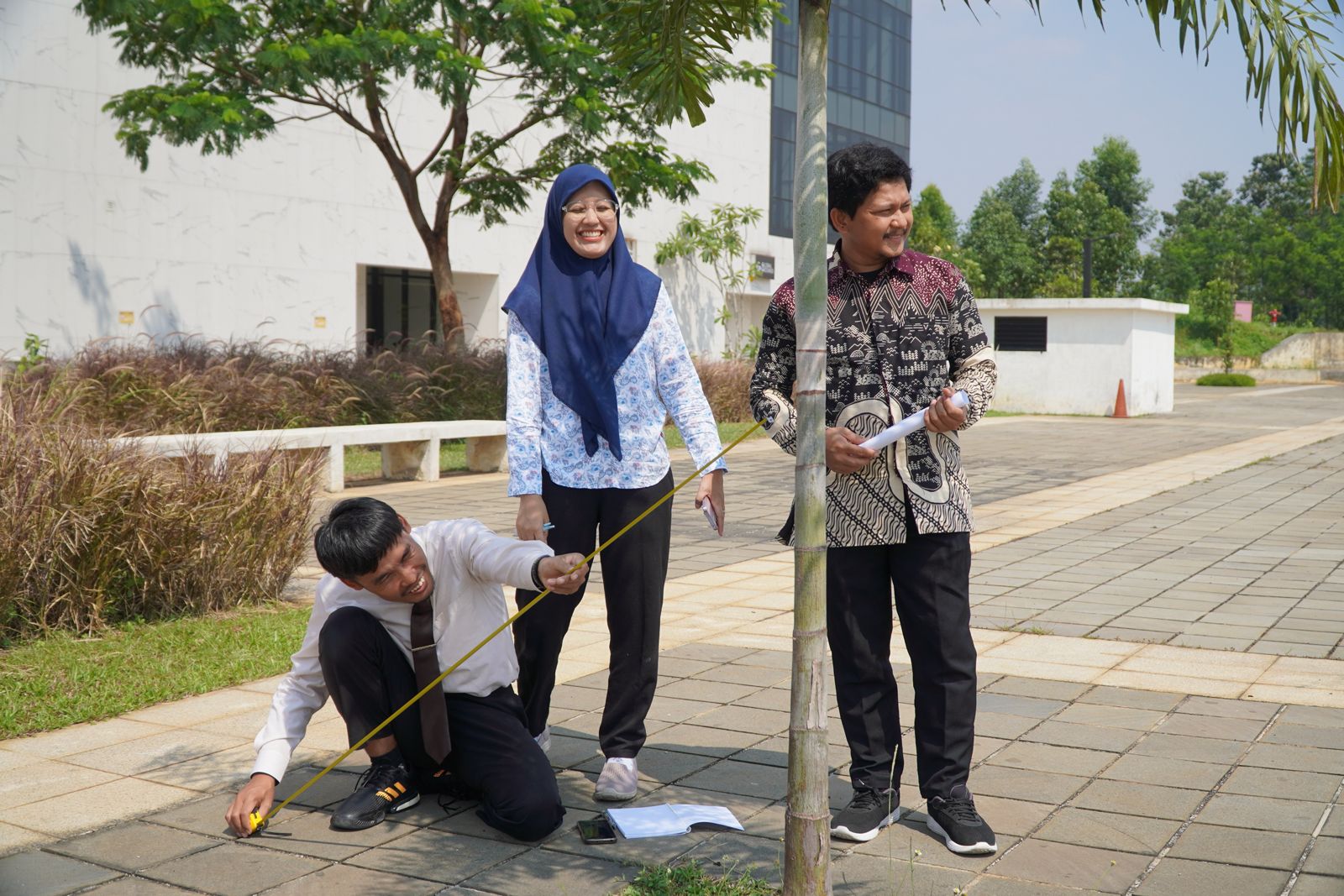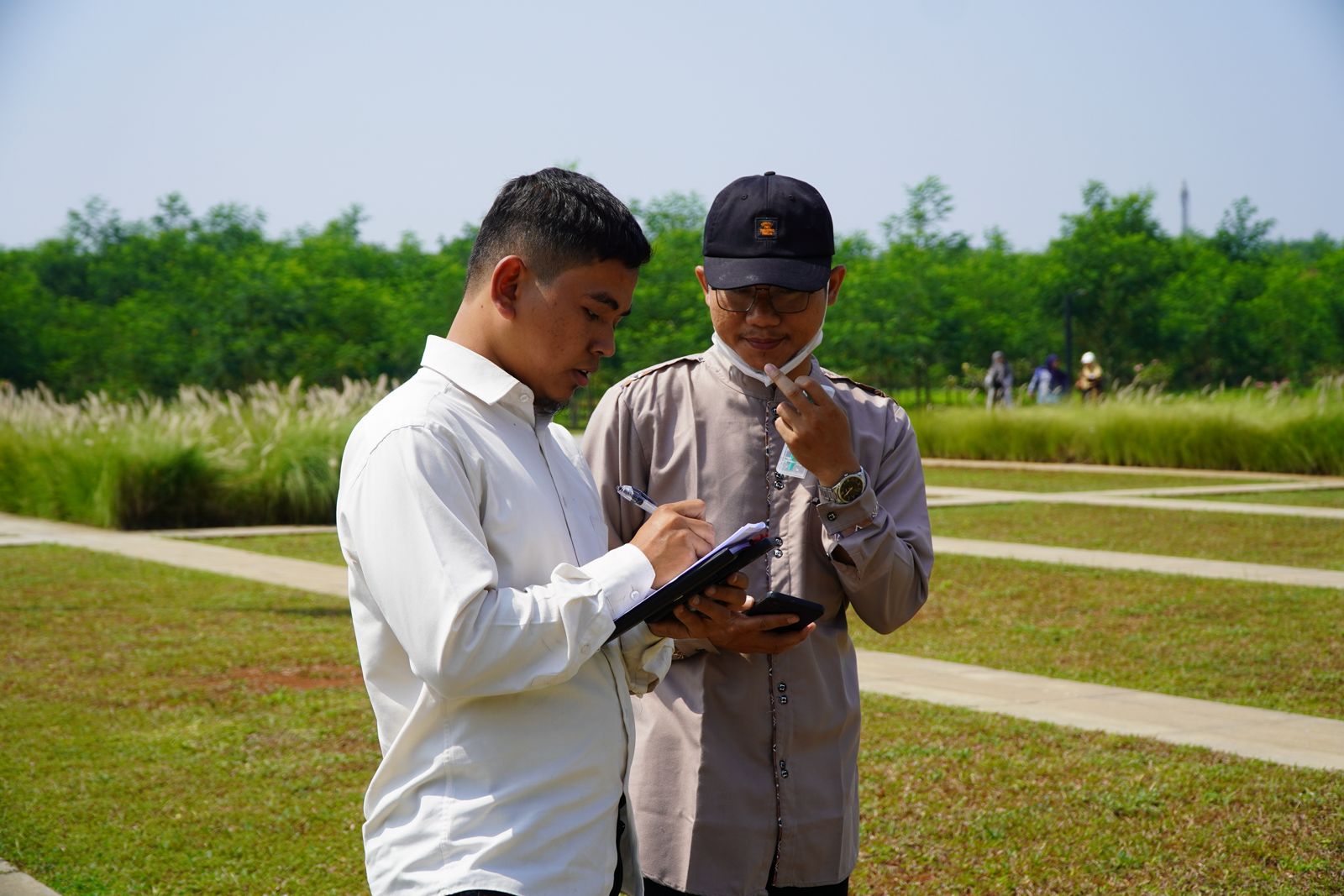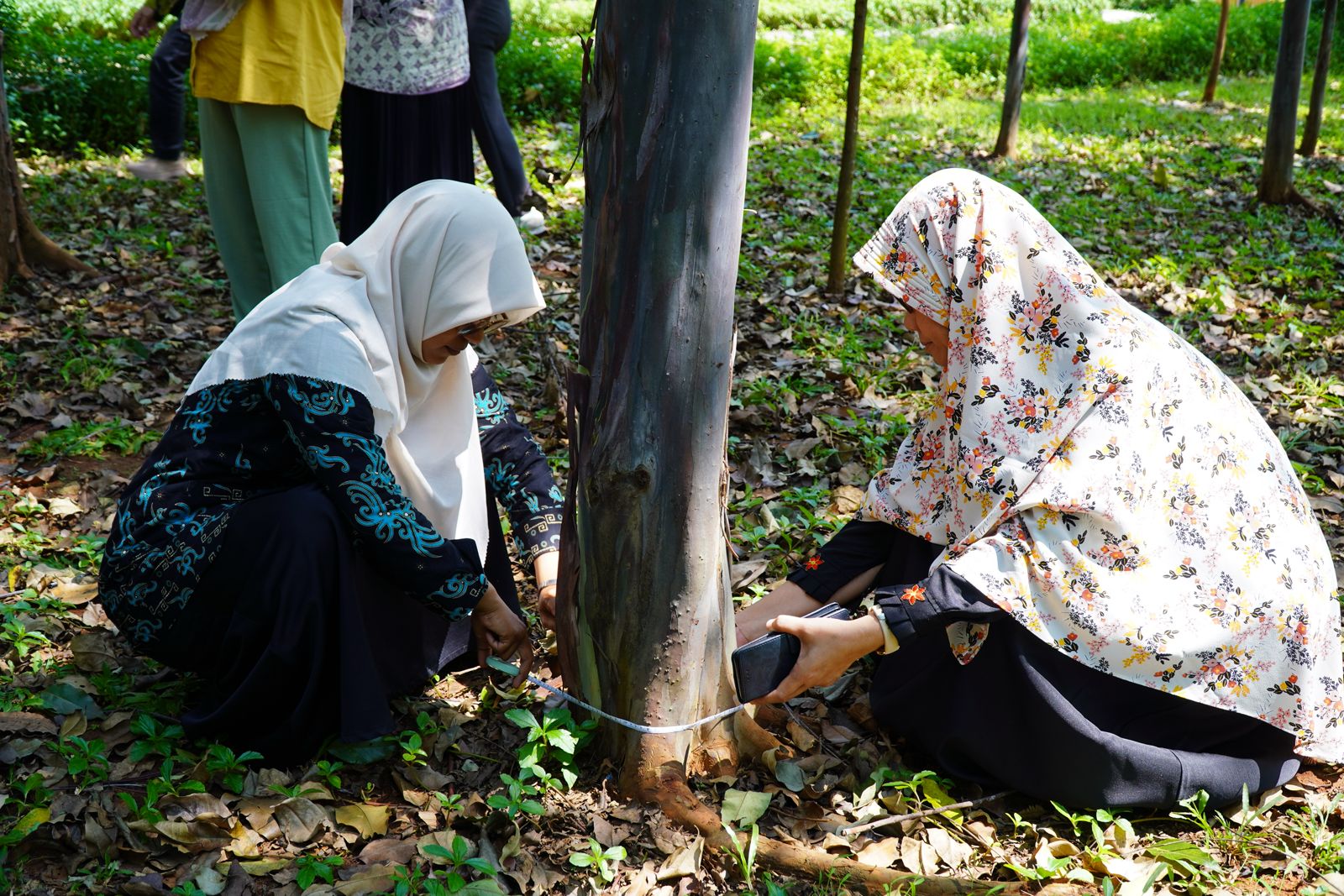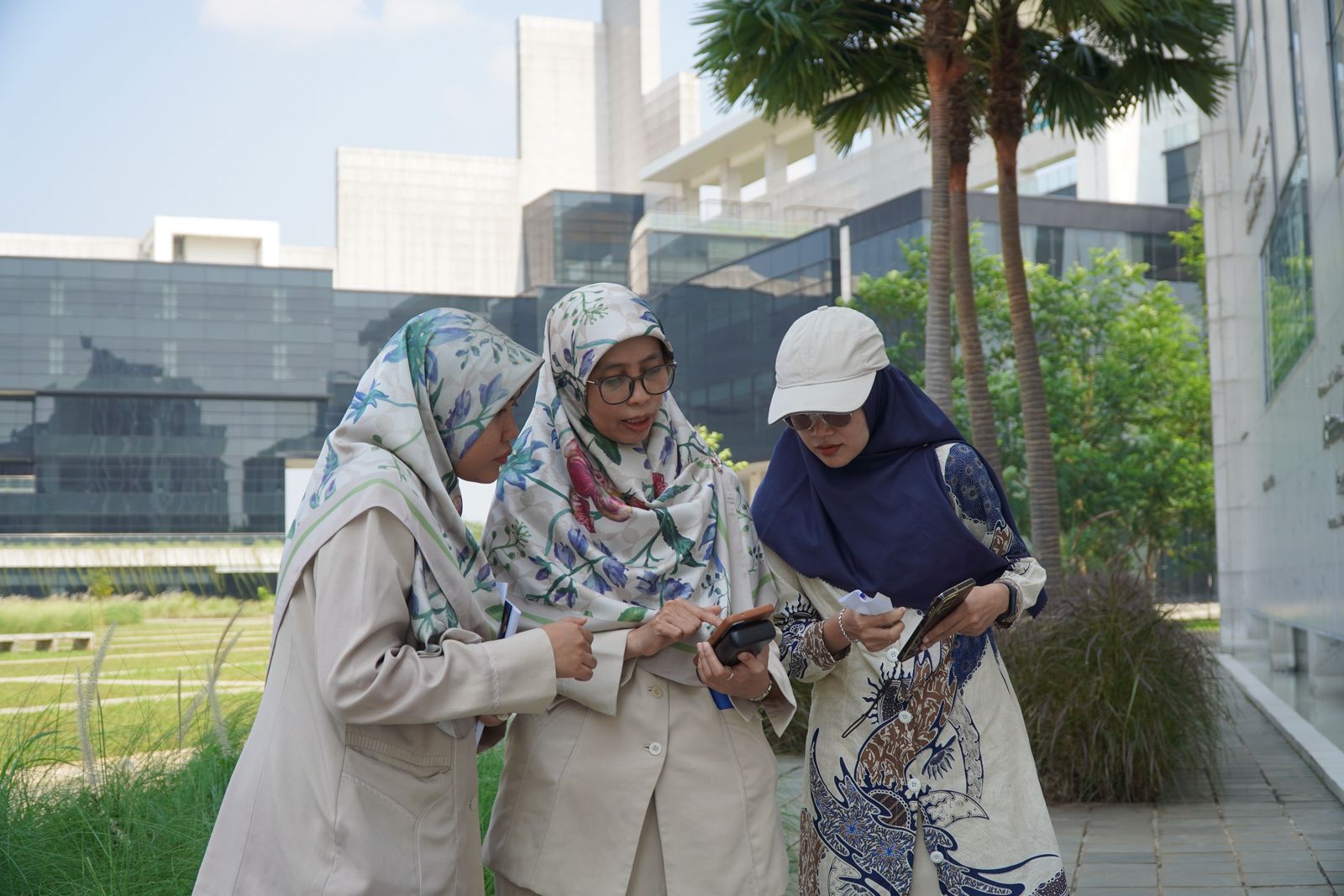More From News
Welcoming Ramadan with a Fresh Spirit: UIII Inaugurates New Mosque Board
February 13, 2026
Cycle of Civilization
February 12, 2026
August 15, 2025
Contributor: Supriyono | Editor: Dadi Darmadi | Photo: Virda Lalitya Umam

What if we say that math lessons should not always happen in classrooms filled with formulas on the board? On Friday, 25 July 2025, a group of math teachers in Depok left their desks for the outdoors, turning the city into one giant problem-solving playground.
This workshop was called ‘STEM Trails with Socio-Scientific Issues’, hosted by UIII’s Faculty of Education in collaboration with Universitas Negeri Semarang (UNNES), Universitas Syiah Kuala (USK), and the Math Trails Lab community. It was part of the nationwide ‘Reset Kolaborasi Indonesia (RKI)’ project, which brings together 24 PTN-BH across the country to collaborate in comprehensive research.
The idea is simple but exciting: use MathCityMap (https://mathcitymap.eu/en/), a digital tool that transforms parks, streets, and public spaces into real-life math challenges. Participants learned to design tasks based on local socio-scientific issues—that can be problems rooted in societies, so students can connect math to real life.

“This project is our way of showing that math can be fun, relevant, and tied to the real world,” said Dr. Destina Wahyu Winarti, a lecturer at UIII’s Faculty of Education and lead organizer for the Depok session. “We want students to solve problems they can actually see, not just read about in a textbook. It is like throwing one stone and getting two birds—helping them understand math better while also raising awareness about issues that matter in their own communities.”
One of the guest speakers, Adi Nurcahyo from UNNES explained that MathCityMap was developed in Frankfurt, Germany, in 2013. “It’s about taking math outdoors with the help of technology,” he said. “We’ve built the Math Trails Lab to adapt it for Indonesia, so teachers, students, and even the public can join in. You might find math problems in a city park, a museum, or even a historic building.”

The workshop was not just about theory—teachers hit the field, completing math trails themselves. Novita Andriani from SMAIT Al Haraki said, “It was fun because we had to find task points in our nearby environment. We couldn’t work alone—we debated, corrected each other, and in the end, we solved the problems together.”
For Febriyansyah, a math teacher at SMP Pesantren Cendekia Amanah, the biggest wish is for the program to grow: “It’s amazing, especially with trainers from different regions. I hope we can bring it to more places, especially remote areas in eastern Indonesia.”
By the end of the workshop, one thing was clear—math doesn’t have to be boring. With the right tools, a little creativity, and a willingness to step outside, it can feel like an adventure.

Universitas Islam Internasional Indonesia